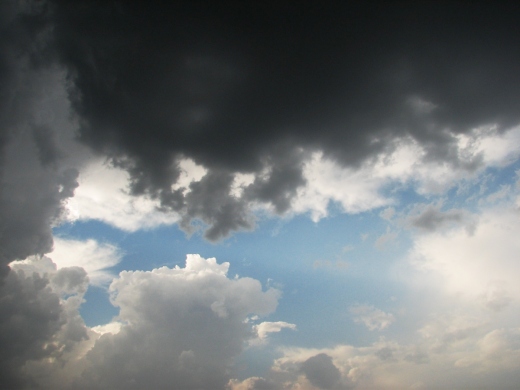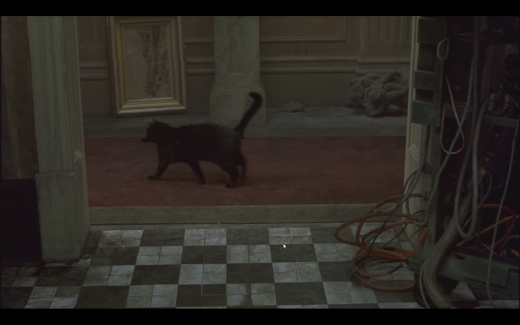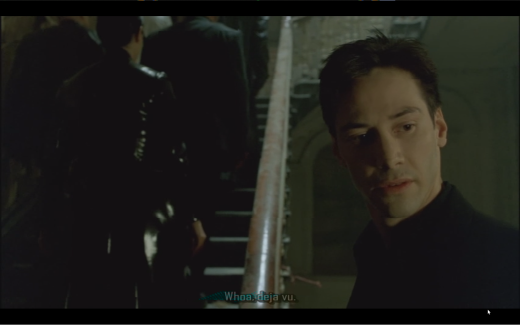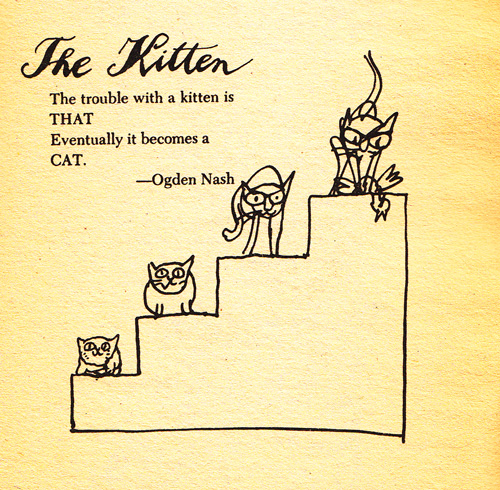Continuing with our last post, about the monsoons this is another entry from The Charm of Bombay, an anthology of writings in praise of the first city in India (1915) edited by Rustomji Pestonji Karkaria 1869-1919.

Storms Heralding the Monsoon.
Sir George-Birdwood.
In the afternoon sullen thunder began in the North-west, where clouds had all day been gathering in towering piles. As they thundered the clouds moved slowly down across the North Konkan, and about four o’clock gathered against the jagged crest of Bava Malang. To the North, and all along the Bava Malang range the sky and land were filled with lurid clouds, thunder lightning, and rain, the Kalyan river flowing back as ink through a scene of the most striking – desolation and gloom, South of this abrupt line of storm, the country from Bombay to Khandala was full of pure calm light. Every village, every hut, every road and forest-track, even the bridge over the river at Chauk, came clearly into view. The trees and groves looked magically green; and the light picked out the most hidden streams and burnished them into threads of molten silver. The Panvel and Nagothana rivers shone like mirrors, and the sea was scored with bars of vivid sunshine. Suddenly at about five, the storm-rack poured over Bava Malang like a tumultuous sea, and swept into the deep valley between Matheran and Prabal with furious blasts and torrents, awful thunder, and flashes of forked lightning. When the clouds had filled the valley, the rain and wind ceased and the storm stood still, and, in dead stillness, the thunder and lightning raged without ceasing for an hour. The thunder mostly rolled from end to end of the valley, but it sometimes burst with a crash fit to loosen the bonds of the hills. At six o’clock the storm again moved and passed slowly south over Prabal towards Nagothana. Another enchanting scene opened in the South. Every hut, tree and stream grew strangely clear, the rain-filled rice fields and rivers flashed like steel, while fleecy clouds lay on every hillock and slowly crept up every ravine. As the sun set behind Bombay the air was filled with soft golden light. Westwards towards Thana the hill-tops were bright with every hue from golden light to deep purple shadow, while, among them, the winding Ulhas shone like links of burnished gold. Then, the moon rose, brightened the mists which had gathered out of the ravines and off the hills, and cleared a way across the calm heavens, while far in the south the black embattled storm-rack belched flame and thunder the whole night long. The next day (Tuesday) passed without a storm. On Wednesday, the 8th, eastwards towards Khandala vast electric cloud banks, began to gather. At two in the afternoon, with mutterings of thunder, the sky grew suddenly black and lurid. At half-past two the storm passed west moving straight on Matheran. A mist went before the storm, thickening as it came, first into trailing clouds and then into dripping rain, with muttering thunder all the while. At three the valley between Matheran and Prabal was filled with storm. Thunder rolled in long echoing peals, and flashes lightened the dense fog with extraordinary splendour. The fog lasted with heavy rain till 3-45, when a light wind swept it west towards Bombay, where about four the monsoon burst. These appalling electric outbursts end serenely. The storm clouds retreat like a drove of bellowing bulls and their last echoes die beyond the distant hills. The sun shines again in majesty, in every dell the delicious sound of running water wakens life, and the woods are vocal with the glad song of birds.
London Times, Jan. 1880
Apud Bombay Gazetteer Vol. XIV pp. 247-248,
Month: May 2013
Monsoon Cometh..
Now that Some parts of India are experiencing a heat-wave, people are looking forward to coming of the monsoons. Which mark an end to the annual saga of heat. This post has some descriptions by a British of how coming of the monsoon is experienced in Bombay.
This is from The Charm of Bombay, an anthology of writings in praise of the first city in India (1915) edited by Rustomji Pestonji Karkaria 1869-1919.

BURST OF THE MONSOON.
Henry Moses
The day at length arrives when the windows of heaven are to be opened, and man’s anxious doubts and fears are to be dispelled by this gracious provision for his wants. Dark clouds towards noon, gather in the south-west, and gradually steal over the azure firmament, casting a gloomy shadow upon the earth, and obscuring the intensity of the sun’s rays as they flit over his surface in their onward progress. A current of cool, strange air now denotes some remarkable atmospheric change. The ocean is unusually agitated; the waves are lifted up hurried onwards as the breeze increases — the angry waters come foaming and roaring towards the shore, and are broken with violence upon the rock ; receding but to break again with redoubled force. Distant peals of thunder echo among the lofty Ghauts far down the coast, and vivid streams of forked lightning illumine their peaked summits. The dry leaves of the lofty palms rattle overhead, and the forests are agitated and shaken as the hurricane roars through their solemn vistas, and breaks in upon their profound stillness. The soaring kite flaps his outstretched wings, as he rises alarmed from his lone perch, and is hurried away upon the storm. The cattle on the plains congregate together, as if driven by some irresistible impulse to seek the shelter and protection of each other, and lie down with their heads close to the earth, as if conscious of approaching danger; and the poor Hindoo wraps his muslin kummerband tighter around him, as the cool air expands its many folds, and exposes his delicately formed limbs to the chilly blast. The skies become darkened, and sheets of blazing lightning, followed up by the roar of deafening thunder, succeed each other with fearful rapidity; and, though in broad day, the eye can scarcely bear to look upon the flaming heavens, so in- tense is their brightness.
The elements are indeed at war. Large drops of rain begin to fall ; and falling, raise up, in consequence of their weight, a cloud of dust ; and then, within a brief space, the mighty clouds descend upon the thirsty land. The tempest is terrific to behold, and man trembles beneath the storm. He seeks in haste the shelter of his mud- built cabin, and mutters a hurried prayer to the stone idol which he has set up. The high houses in the Fort of Bombay vibrate with every clap of thunder; doors and windows, and walls and floors are shaken by the loud artillery of heaven. Torrents of water pour down from every roof, and bound over, in broken streams, the sounding verandahs below them, sweeping the various streets as the flood rushes onward, laden with mud and rubbish, towards the sea.
To those persons who have but just arrived in the country, and who, having never experienced the setting in of this remarkable season, have formed from description but an imperfect idea of that change, the scene is pregnant with horror of every kind. The newly-arrived Englishwoman in particular suffers exceedingly at this period, being scarcely able to divest herself of the impression, that everything around her is about to be destroyed or washed away; yet it is very seldom that accidents occur or that property is seriously injured. Occasionally we hear of exposed houses being struck by lightning on the Island, of old palm trees blown down, and of leaf roofs being dispersed to the four winds of heaven ; for woe be unto him who lives in a bungalow with a bad roof, or in one whose spouts are out of order; but with these exceptions, Europeans on shore have but little to be alarmed about for their personal safety.
Myriads of mosquitoes, now driven in by the rains, fill your apartments; and your lamps at night, if not properly covered over with a glass shade, are liable to be suddenly extinguished by the large green beetles that have sought shelter from the storm without. Flying bugs almost poison you with their fetid effluvia, and contaminate every article of food upon which they may chance to alight. The musk weasels dart in under your China matting, and find their way into your wine-cellars, and every cork they touchy every bottle they spoil. That nimble and really useful reptile, the house lizard, climbs your walls in all directions, and comes out so regularly frorrt under your table after dinner, to feed upon the flies attracted thither, that you quite look for the active little creature as a matter of course, to amuse you during dessert time; and if he fail to appear, express regret, as I have heard an old gentleman do, at its non-arrival. The loathsome centipede gets into your cooking-houses, and hideous spiders, with hairy bodies and long legs takeup their quarters in every available corner and door-way They are not content with staying; at home quietly like our own respectable, though small species, and of taking their chance of what may be sent them ; but they must make daily tours all over the establishment, as if it were expected that they should pay visits to one another, now that the season had brought them into town. In fact, all the. entomological tormentors of India appear to have a design upon your house and happiness. A continual buzzing is kept up a- round you day and night. Ants creep up your legs, while fleas irritate your body; and farewell to sleep, if your gauze curtains display any rents at bed-time. The punkahs or swinging fans suspended in your rooms, now have rest from their labours, for the atmosphere is sufficiently cool without any artificial currents of air. The sweet-scented cuscus mats, or tatties, hung outside between the pillars that support your verandah, and kept wet, in order to lower the temperature of the heated breeze before it enters your house, are now taken down and laid aside; and quite a change takes place in all your little plans within doors.
Sketches of India, 1850, pages 84-88.
Déjà vu of déjà vu
I was introduced to the term déjà vu from The Matrix. This is how the scene unfolds:

[Neo sees a black cat walk by them, and then a similar black cat walk by them just like the first one]
Neo: Whoa. Déjà vu.
[Everyone freezes right in their tracks]
Trinity: What did you just say?
Neo: Nothing. Just had a little déjà vu.
Trinity: What did you see?
Cypher: What happened?
Neo: A black cat went past us, and then another that looked just like it.
Trinity: How much like it? Was it the same cat?
Neo: It might have been. I’m not sure.
Morpheus: Switch! Apoc!
Neo: What is it?
Trinity: A déjà vu is usually a glitch in the Matrix. It happens when they change something.

Now let us leave The Matrix for now and enter the real world. I mean our world, and I am not Morpheus. We had a lot of issues with the quandrangular cat recently at my working place. Now don’t ask what a quandrangular cat is? If you don’t know already, you don’t need to know. Remember, in the first approximation the cow is a spherical object.

Circa, a few months back we had a sorry looking undomesticated cat, who was domesticated, nursed back to health, and attained zen (if you don’t believe me see the picture above (Picture Credits: Rafikh)). This was only possible by the warmth of many people’s affections and efforts. But unfortunately the cat overstayed, unwelcomed by some, on GoI property (without paying any taxes!) which wrecked havoc and created a red alert. To further complicate the matters, we could not for sure determine if the cat was a he or a she! The presence of cat in the campus was as good as an extinction event, extinction of one’s peace of mind and good vibes. that is. This called for extreme measures to show cat (and the ailurophiles ) their respective places. The entire drama was just short of executing the cat (and the ailurophiles ) in public. The cat was sent into exile, and if the reports coming in believed to be true, even there it is creating extinction events!
Now. Yesterday, déjà vu ! I see a similar cat in the same place approaching me similarly, well not almost as same as Neo’s black cat but quite similar. And I almost said as Neo does, (but I am neither Neo) “déjà vu!” First thing I thought was the déjà vu in The Matrix. But then this is a déjà vu of déjà vu, and cats are involved in both of them. What is it with cats and déjà vu? Déjà vu recursive, nothing more groovier than that! Four cats in all. The newer cat, which caused the current déjà vu , was smaller and in sorrier state and also approached me on the same table as earlier one. Unfortunately, I do not have a picture of the newer cat for comparison. Will this create another leela (pun intended), which would be another déjà vu for both ailurophiles and ailurophobes? Actually if semantics of earlier sentence are seen, then we come to conclusion that leela and déjà vu are same 😛

Now it remains to be seen what has changed in The Matrix.
PS: This new cat seems to have set the ball rolling, it is already making people uncomfortable, causing extinction events!
From or with?
My place was not with the heroes, but with the rablle, with the men who had been pressed into the ranks by force of arms, or force of hunger, with nothing to fight or work for and little to gain; whose function in the epics was to be slaughtered by the heroes; whose role, according to the historians, was to provide a mere background for the deeds of great men. The heroes of a money-making society rose from the people, at the expense of the people; I could rise only with the common people.
D. D. Kosambi | The Kanpur Road | Exasperating Essays
Radical Openness – Scientific Research
“The more we’re getting into this the more it’s apparent this is a radical new way to scientific research. Traditional research is done in an institution with patent protection. IP protection and patents slows progress because it reduces collaboration and makes it harder to build on the work of others. Our project, we don’t have a central body. It’s the public, they’re the ones who get excited. Because we’re not beholden to shareholders we can create a community.”
via Glowing Plant| Singularity Hub.
I just hope that this project is successful and will create a new way of doing scientific research which will involve common people.

